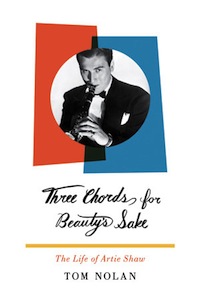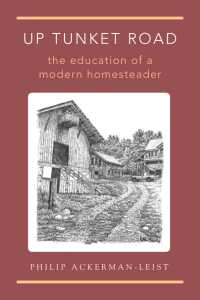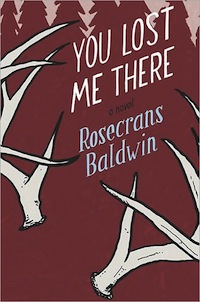One Never Know, Do One?
Reading a Guardian article headlined “Jodi Picoult attacks favoritism towards ‘white male literary darlings’—Bestselling author attacks New York Times for narrow focus of its review coverage” had me checking to ascertain that I wasn’t somehow shanghaied and thrown back into the 20th century via a time machine. That this was somehow news or even worth a few hundred words in newsprint reminded me that in the newspaper business apparently everything old can be new. Picoult, using the newest arrow in the overlooked-writer’s quiver, Twitter, tweeted, as collated by the Guardian:
“NYT raved about Franzen’s new book. Is anyone shocked?” “Would love to see the NYT rave about authors who aren’t white male literary darlings.” For every review of authors such as Haitian-American writer Edwidge Danticat or the Dominican-American Pulitzer winner Junot Díaz, “there are 10 Lethems and Franzens.
The cherry on the top of this bovine vernacular is Picoult’s swipe at the Times’s venerable Michiko Kakutani’s vocabulary (Kakutani used the word “lapidary” in her Freedom review):
Did you know what [it] meant when you read it in Kakutani’s review? I think reviewers just like to look smart
By the way, I have never read or been tempted to read Jodi Picoult’s novels, but I have succumbed to the tidal wave of publicity and begun to read Jonathan Franzen’s Freedom (FSG) and am finding it every bit as inviting and amusing as his magnum opus, The Corrections.
* * *

The good news for jazz lovers was the reported acquisition of the famed Savory Collection by the National Jazz Museum, and, additionally, the publication of Tom Nolan’s biography of band leader and clarinetist Artie Shaw, Three Chords for Beauty’s Sake: The Life of Artie Shaw. Shaw was the Swing Era’s superstar, penning dozens of hits such as “Begin the Beguine” and (no small feat) marrying seven times, including silver-screen dazzlers Lana Turner and Ava Gardener.
Dolan, who interviewed Shaw for a period of 14 years preceding his 2004 death, quotes Shaw’s son, Jonathan:
“A deeply unhappy man… He didn’t love anything or anybody… Well, that’s the tragedy of his life: that he was unable to give or receive love—because he’d never been given any love as a kid. Music is what intervened. That was the saving grace, for Artie. He made beautiful music. He made beautiful art. He was redeemed by his talent and his drive, and his obsession. I mean, it’s noble. He was born to lose, and he lived to win.”
* * *
Canadian writer Annabel Lyon’s well-received novel The Golden Mean (Knopf) apparently has run into some difficulties in Canada and Britain where the book’s cover features a naked man on a horse. Apparently, the U.S. has been spared such an affront to whatever a naked man is an affront to.
Set in 342 B.C., the novel recounts the great Greek intellectual Aristotle’s reluctant assumption of the tutelage of the Alexander, the rambunctious son of his boyhood friend Philip of Macedon. Given all stripes of court intrigues and what we know Alexander became and accomplished this is an ambitious and vivid snapshot of ancient history.
* * *

University of Michigan mentor Michael Byers’s (Long for This World) second novel, Percival’s Planet (Holt), takes us back to 1928 America with an odd gaggle of characters orbiting around the competition to discover the last planet, Planet X, in our solar system—what was eventually named Pluto. Which, by the way, was demoted to the status of dwarf planet in 2006 by the International Astronomical Union.
Farmboy turned astronomer Clyde Tombaugh, the staff of Lowell Observatory, an immensely rich heir to a chemical fortune (who is hunting dinosaurs), and the most beautiful girl in America and her ex-heavyweight champion boyfriend are all in a nexus that focuses on heavenly bodies and earthly mayhem and havoc. A good time may not be had by all—but the reader will.
* * *
Chicago, the city with broad shoulders, has been home to a wide array of splendid things—Nelson Algren, Studs Terkel, Ernie Banks, deep dish pizza, the hot dog, Joseph Epstein, Ozzie Guillen—many of which, for peculiar reasons, remain unknown to many sentient beings residing in the grand psych experiment known as the Northeast.
And so it is no surprise that literary treasure and University of Chicago mentor emeritus Richard Stern, whose writing life extends back some 60 years with 19 works of fiction and nonfiction, has published Still on Call (University of Michigan Press), his sixth and final collection of what Stern calls orderly miscellany, to little fanfare.

Perhaps the loud silence is more than balanced by Philip Roth’s assertion:
Stern’s new miscellany reveals a literary mind of the first order, thinking in elegant prose about dozens of interesting subjects.
Stern points out:
The book has been almost entirely written and assembled by a man in his late seventies. If that man, me, can be trusted to assess his powers, then he goes on record here saying, “In some ways, I’m a wiser, more knowledgeable, and even abler writer than I was ten, twenty, or fifty years ago. I believe that my opinions should be even more seriously considered, although in some cases, the weariness of age has stopped me from defining them as clearly or backing them up as carefully and fully as my younger self would have.
Stern’s tome is part of a series edited by Jay Parini called “Writers on Writing,” including titles by Michael Collier, Nancy Willard, Christopher Benfey, and Ilan Stavans.
* * *

My first impulse was to declare my surprise that there has not been an upswing in books dealing with the rural idyll/utopian return-to-nature theme, but then I realized I have no idea how many such books are published or circulated given I may not be the target audience (which is actually a meaningless notion when it comes to books and readers).
Or there is probably no money in the nature game or else I would have been apprised of such, via a publicity initiative.
Nonetheless, books such as The Bucolic Plague, which relates the deurbanization of two hardcore Manhattanites, do raise my consciousness of notions and trends related to decamping to something akin to the wide open spaces. Philip Ackerman-Leist’s Up Tunket Road: The Education of a Modern Homesteader (Chelsea Green) recalls the eight years he and his wife Erin (whose wonderful stippled illustrations illuminate this book) spent living in an old cabin in remote western Vermont. Its a kind of subtly annotated how-to guide as well as a reorientation regarding lifestyles. Here’s the author’s take:
This book is as much a story about the evolution of a homesteader’s assumptions as it is about creating a back-to-the-land homestead. It is a story about living nearly eight years without electricity or running water in small cabin before designing, building, and moving into a comfortable off-grid home built for a growing family and an expanding farm. But at its core it is a book about the education of a homesteader…who happens to be an educator
Along these lines there is William Powers’s (not the William Powers of Hamlet’s Blackberry) Twelve by Twelve: A One Room Cabin Off the Grid & Beyond the American Dream (New World Library)—the title tells as much as the book’s epigram, compliments of Franz Kafka:
You need not leave your room. Remain sitting at your table and listen. You need not even listen, simply wait. You need not even wait just learn to become quiet and still, and solitary. The world will freely offer itself to you unmasked. It has no choice; it will roll in ecstasy at your feet.
What more do you need to know?
* * *
Maybe you know who Rula Lenska was. Maybe not. Frankly, I don’t know who those mascara-heavy bovines known as the Kandrashians are, but Alexandra Stanley was amusingly helpful not in the least for reminding me that:
Celebrities of yore wore more clothes and had better manners, but then, as now, they went to a lot of parties and were often famous for being famous.
In my recent chat with Jennifer Egan, she mentions that historian Daniel Boorstin made much of this famous-for-being-famous notion in his 1961 book The Image.
* * *

The Morning News has hit the trifecta with Rosencrantz Baldwin—You Lost Me There (Riverhead)—joining Anthony Doerr and Jessica Francis Kane in the march to the bestsellers list or some version of literary success (and also TMNer Kevin Guilfoile, whose The Thousand was published this week by Knopf. Is that a quadfecta?).
Baldwin’s debut novel garnered a NYTBR critique and an exuberant National Public Radio rave.
* * *
Here’s a prototypical literary kerfluffle. Recently I was pleased to commend Carl Mirra’s The Admirable Radical. John Sommers, who I sense prides himself on his iconoclastic flair (he wrote a disparaging piece on Ivy League students a few years ago) reviewed Mirra’s book to which both Mirra and Lynd took exception. The New Republic gave Sommers the last word. Too bad.
